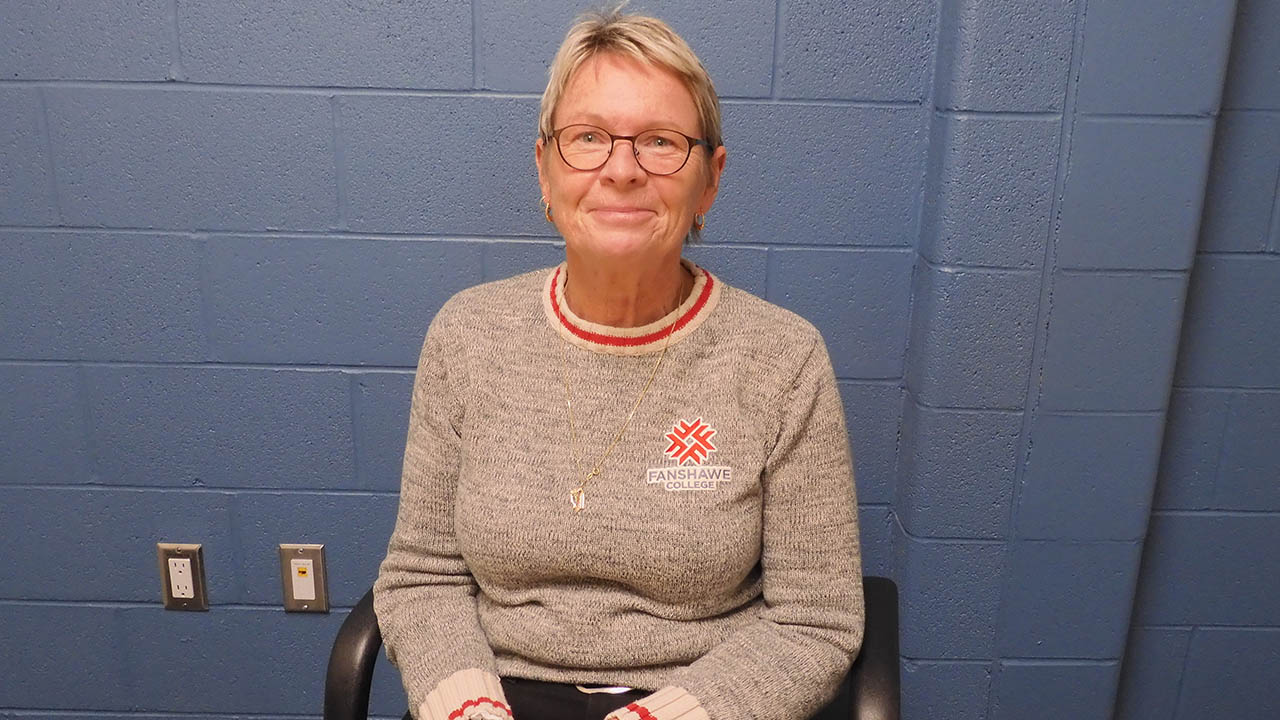Helping homeless about more than just providing housing
 CREDIT: EMILY STEWART
CREDIT: EMILY STEWARTCatherine Urquhart, a social service worker (SSW) professor at Fanshawe College, said that while many people think helping those without housing is solely done by providing a roof over their head, finding support services and a community is also key.
Catherine Urquhart, a professor in the social service worker (SSW) program at Fanshawe College, knows there is more to helping those facing homelessness than just putting a roof over their head.
Urquhart said she’s not an expert on living rough — the people who are living without housing are experts.
“They’re the ones that know what it’s like. They’re the ones that know what they need but from an outsider looking in, I’d say that housing is essential,” she said. “It’s a basic right. It should be a basic right and so then as a community, do we have a responsibility to house all? And I’d say yes.”
She added a connections to services for mental health, addiction, food, and/or employment are essential, along with a sense of community. Otherwise, those who previously lived on the streets feel isolated. A few years ago, someone moved from the Unity Project for Relief of Homelessness in London to social housing, but felt alone.
“They were used to hearing the noise of the street,” said Urquhart. “They were used to having people about and so what happened for them was that they ended up going back to the street because that is where they had community. That’s where they had a connection and they felt isolated and lonely. So we think that it’s just housing, but it’s not just housing.”
The Fanshawe professor compared finding and using supports to having a gym membership. Someone paying a monthly gym membership will feel more obligated to go if they had a friend to workout with, but likely wouldn’t go alone even if they continued to pay for it.
“Sometimes what we do is we set up services and supports for people — even if we got them housed and could support them — we then say to them ‘It’s up to you now to get the supports that you need,’ and I have to say that’s difficult, right?” she said. “They don’t have a hand to hold to get them there, and so, could we provide that hand to hold?”
During practicums, SSW students work with places like Mission Services of London, Centre of Hope, London Cares, Atlohsa, and the Unity Project. Students also take a community development course and work with individuals living in social housing as part of a group project. The projects run from September to April and give students a chance to apply their community engagement and counselling skills to talk to the residents about their strengths to encourage community by building rapport.
By building and maintaining rapport with alumni, the College community is aware of issues faced by those without housing. Urquhart said Fanshawe is doing great with building community relationships in London, and would like to see more work from the College to help those facing homelessness.
“I think that this College is the entrance to community and should be a revolving door for community because it’s all about — we’re a community college so therefore, we should be able to do as much or more in the community than any other social service system agency.”















